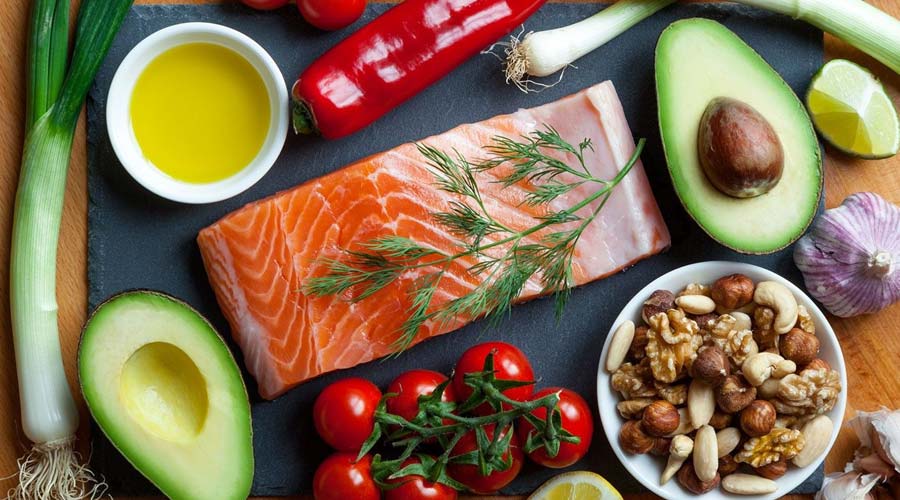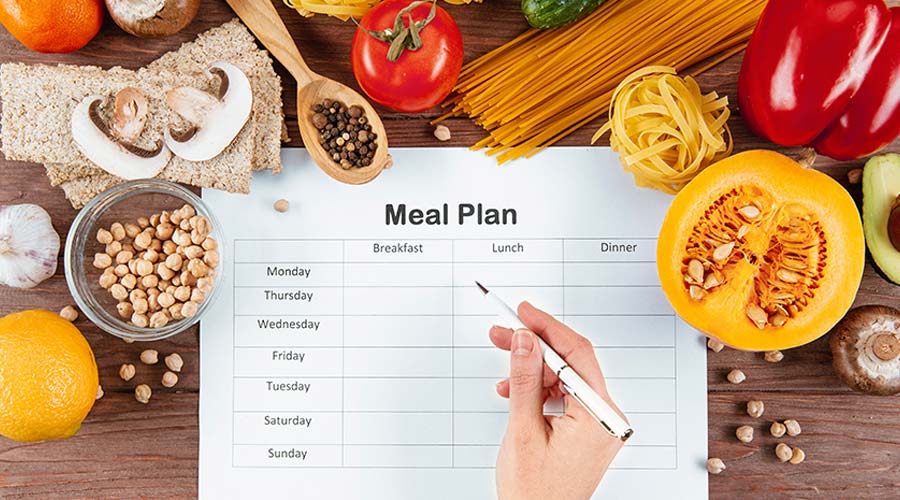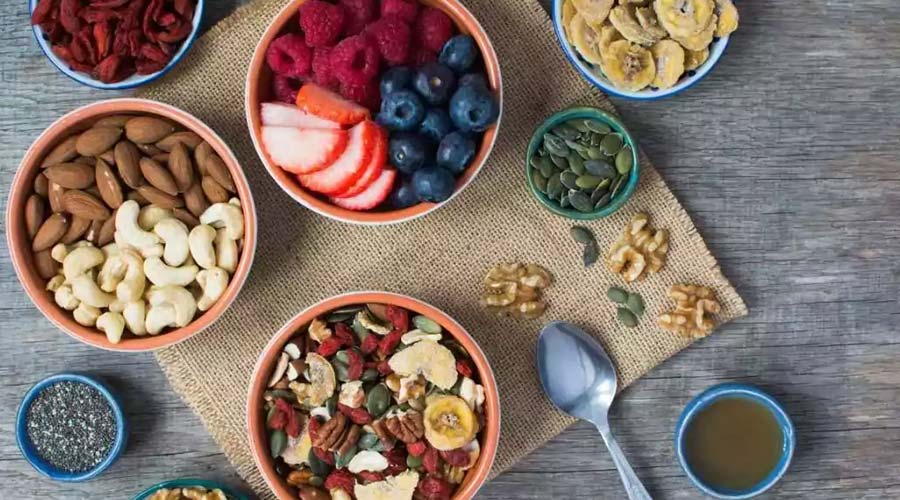Losing weight can be a daunting task for anyone, but it can be especially challenging for those living with diabetes. diabetic diet for weight loss is not as restrictive as you may think! In this blog post, we will provide a comprehensive guide to creating a diabetic diet that helps you lose weight safely and effectively. We will cover everything from what to eat to how much you should be eating each day. So whether you are just starting out on your weight loss journey or you have been struggling to see results, this blog post is for you!
Table of Contents
Which diet is right for diabetes?
There are two main types of diabetes: type 1 and type 2. Type 1 diabetes is an autoimmune disease in which the pancreas stops producing insulin. This is the less common type of diabetes, affecting about 5% of people who have the disease.

Type 2 diabetes is the most common type, affecting about 90% of people who have diabetes. In this type of diabetes, the body does not produce enough insulin or the body’s cells do not respond to insulin properly.
What is the difference between type one and type two diabetes?
Type one diabetes is when the body does not produce insulin and type two diabetes is when the body does not use insulin effectively. Some common symptoms of type one diabetes include increased thirst, frequent urination, fatigue, and blurred vision. Some common symptoms of type two diabetes include increased thirst, frequent urination, fatigue, blurred vision, and slow-healing wounds. If you are concerned that you may have either type of diabetes, it is important
Insulin is a hormone that helps the body use glucose (sugar) for energy. When there is not enough insulin or when the body’s cells do not respond to it properly, glucose builds up in the blood and can cause some serious health problems.
Know the Difference of Testosterone Enanthate vs Cypionate
What are the symptoms of diabetes?
The symptoms of diabetes can vary depending on the type of diabetes and how well-controlled it is. Some common symptoms include increased thirst, frequent urination, fatigue, and blurred vision. If you are concerned that you may be diabetic, it is important to consult with your healthcare team. They will be able to provide you with the most accurate information and guidance.

There are a variety of different diets that can be followed to manage diabetes, a diabetic diet for weight loss being one of them. When it comes to choosing the right diet for you, there is no “one size fits all” answer. You will need to work with your healthcare team to find a diet that fits both your lifestyle and health needs. However, some general tips on choosing a diabetic diet include:
- choosing a diet that is rich in whole grains, fruits, and vegetables
- avoiding processed foods and sugary drinks
- eating moderate amounts of healthy protein and fat
How does diabetic diet help with weight loss?
A diabetic diet for weight loss focuses on eating nutrient-rich foods that promote healthy blood sugar levels and weight loss. By following a diabetic diet, you can lose weight gradually and safely while still maintaining blood sugar levels within your target range. In fact, research shows that people who follow a diabetic diet are more likely to lose weight and keep it off long-term than those who don’t follow one.
What is the best diet for people with diabetes?
How much should I eat on a diabetic diet?

The amount of food you eat will depend on a number of factors, including your activity level, weight, and blood sugar levels. Be sure to work with your healthcare team to determine how many calories you should be eating each day. In general, people following a diabetic diet for weight loss should aim to eat:
- three meals and two snacks per day
- meals that are rich in fiber and protein
- snacks that contain healthy fats or protein

According to the American Diabetes Association (ADA), there is no set carb target for all people with diabetes. Rather, all diet plans should be individualized.
A diabetic diet for weight loss typically includes:
- fruit
- vegetables
- healthy protein sources such as grilled chicken or fish, tofu, legumes
- low-fat dairy products
- nuts and seeds
- healthy fats such as olive oil or avocado
When creating your own diabetic diet for weight loss, be sure to include a variety of healthy foods from each food group to make sure you are getting all the nutrients your body needs.
See More About Testosterone Tabs Use
Mediterranean diet

The Mediterranean diet is a type of diabetic diet that has been shown to be effective for managing diabetes. The Mediterranean diet is rich in fruits, vegetables, whole grains, legumes, fish, and healthy fats, and it has been linked with a number of health benefits, including reducing the risk of heart disease and cancer.
If you are looking for a diabetic diet that is both healthy and delicious, the Mediterranean diet may be right for you!
Low-carb diet
A low-carbohydrate diet is another option for people with diabetes. This type of diet restricts the number of carbohydrates you eat, which can lead to weight loss. Low-carb diets have been shown to be effective for managing blood sugar levels and improving insulin sensitivity.

If you are interested in following a low-carb diabetic diet, be sure to talk to your healthcare team first to make sure it is safe for you.
Paleolithic diet
The Paleolithic diet, also known as the caveman diet, is a type of low-carb diabetic diet that focuses on eating foods that were available during the Paleolithic era. This includes meats, fish, fruits, vegetables, nuts, and seeds.

The Paleolithic diet has been shown to be effective for managing high blood pressure and weight loss. However, it may not be suitable for everyone due to its restrictive nature. If you are interested in trying the Paleo diet, be sure to speak with your healthcare team first.
Vegetarian or vegan
A vegetarian or vegan diet is another option for people with diabetes. This type of diet eliminates all animal products, including meat, fish, poultry, and dairy.

A vegetarian or vegan diabetic diet can be healthy and delicious! However, it is important to make sure you are getting enough nutrients by eating a variety of fruits, vegetables, whole grains, legumes, nuts, and seeds.
If you are interested in following a vegetarian or vegan diabetic diet, be sure to talk to your healthcare team first to make sure it is safe for you.
Diabetic diet plan to lose weight

If you are looking to lose weight, there are a few things to keep in mind when creating your diabetes diet plan.
- Focus on nutrient-dense foods: When trying to lose weight, it is important to focus on eating nutrient-dense foods that will help you feel full and satisfied. These include fruits, vegetables, whole grains, legumes, lean protein sources, and healthy fats.
- Limit processed and high-sugar foods: Processed foods and foods high in sugar can contribute to weight gain and blood sugar spikes. Try to limit these foods as much as possible when following a diabetic diet for weight loss.
- Include physical activity: Physical activity is an important part of any weight loss plan. Be sure to include 30 minutes of moderate-intensity physical activity most days of the week when creating your diabetic diet plan.

If you are looking to lose weight, there are a few things to keep in mind when creating your diabetic diet plan. Focus on nutrient-dense foods that will help you feel full and satisfied. These include fruits, vegetables, whole grains, legumes, lean protein sources, and healthy fats. Limit processed foods and foods high in sugar as much as possible. Be sure to also include physical activity in your weight loss plan. Most days of the week, aim for at least 30 minutes of moderate-intensity physical activity. By following these tips, you can create a healthy and sustainable diabetic diet plan that will help you reach your weight loss goals!
Foods to reduce

If you have diabetes, there are certain foods you should avoid. These include processed foods, high-sugar foods, sugary drinks, and foods high in unhealthy fats.
- Processed foods are loaded with sugar, unhealthy fats, and sodium, all of which can contribute to weight gain and blood sugar spikes. It is important to avoid these foods when following a diabetic diet.
- Sugary drinks, such as soft drinks, fruit juices, and sports drinks, are a major source of added sugar and calories. These drinks can also lead to blood sugar spikes. Try to avoid or limit these drinks when following a diabetic diet.
- Foods high in unhealthy fats, such as saturated and trans fats, can increase the risk of heart disease. It is important to avoid or limit these fats when following a diabetic diet.
By avoiding these foods, you can help to keep your blood sugar levels under control and improve your overall health.
Know More About Sustanon 250 for Sale
Diabetes-friendly meal plan for 1 week

There are certain foods that can help reduce blood glucose levels. These include:
- Fruits: Fruits are a great source of fiber and nutrients, and many fruits are low in sugar. Try incorporating a variety of fruits into your diabetic diet to get the most benefit.
- Vegetables: Vegetables are another great source of fiber and nutrients, and they tend to be low in sugar as well. Be sure to include plenty of vegetables in your diabetic diet plan.
- Whole grains: Whole grains are high in fiber and nutrients, and they can help regulate blood sugar levels. Try including whole grain products in your diabetic diet.
- Nuts: Nuts are a healthy snack choice that is high in protein and fiber. They can also help regulate blood sugar levels.
- Healthy fats: Healthy fats are an important part of a healthy diabetic diet. Try incorporating sources of healthy fat, such as avocado, olive oil, and nuts into your diabetic diet plan.

Here’s a sample healthy eating plan that you could incorporate into your everyday meals!
Monday
Breakfast: Oatmeal with fruit
Lunch: Turkey sandwich on whole grain bread
Snack: String cheese and a piece of fruit
Dinner: Roasted chicken, brown rice, and steamed broccoli
Tuesday
Breakfast: Yogurt with granola and berries
Lunch: Veggie burger on a whole-grain bun
Snack: Hummus and carrots
Dinner: Fish tacos with black beans and corn
Wednesday
Breakfast: Scrambled eggs with veggies
Lunch: Tuna salad sandwich on whole-grain bread
Snack: Cottage cheese and fruit
Dinner: Spaghetti with lean ground beef and a side salad
Thursday
Breakfast: Omelet with veggies
Lunch: Chicken salad on whole grain bread
Snack: yogurt with berries
Dinner: Grilled salmon, quinoa, and roasted Brussels sprouts
Friday
Breakfast: Toast with peanut butter
Lunch: Leftovers from dinner the night before
Snack: Trail mix
Dinner: Pizza on whole grain crust
Saturday
Brunch: Scrambled eggs and toast
Lunch: Salad with grilled chicken
Snack: Fruit and nuts
Dinner: Grilled steak, roasted potatoes, and steamed green beans
Sunday
Brunch: Pancakes with fruit
Lunch: Sandwich with deli meat and cheese
Snack: popcorn
Dinner: Roast beef, mashed potatoes, and carrots

Summary
A diabetic diet for weight loss can be a great way to safely lose weight and improve your overall health. However, it is important to remember that every person is different and you may need to make some adjustments to find a healthy diet that works best for you. Be sure to consult with your healthcare team before making any changes to your diet especially when you take diabetes medications.
Keep in mind the following tips when creating your diabetic diet:
- choose a diet rich in whole grains, fruits, and vegetables
- avoid processed foods and sugary drinks
- eat moderate amounts of healthy protein and fat
- include a variety of healthy foods from each food group
- eat three meals and two snacks per day
- aim to eat around 1800 – 2000 calories per day depending on your needs.
If you follow these tips, you should be well on your way to safely and effectively losing weight! As always, be sure to check with your healthcare team before making any changes to your diet or lifestyle. They can help you create a plan that is best for you.
Diabetes diets don’t have to be difficult or complicated by following the tips above, you can easily create a diabetic-friendly meal plan that will help you lose weight and improve your overall health! Diabetic diets are typically high in fiber and nutrients, low in sugar, and moderate in protein and fat. This type of eating pattern has been shown to effectively manage blood sugar levels and improve overall health. So if you’re looking to lose weight, a diabetic diet may be the right choice for you! Thanks for reading!
FAQ’s
What should diabetics eat to lose weight?
A diabetic diet for weight loss is typically high in fiber and nutrients, low in sugar, and moderate in protein and fat. This type of eating pattern has been shown to effectively manage blood sugar levels and improve overall health.
What is the best diabetic diet for weight loss?
There is no one-size-fits-all answer to this question, as each person’s needs are different. However, a diabetic diet for weight loss is typically high in fiber and nutrients, low in sugar, and moderate in protein and fat. This type of eating pattern has been shown to effectively manage blood sugar levels and improve overall health.
How can a diabetic lose weight quickly?
There is no one-size-fits-all answer to this question, as each person’s needs are different. However, a diabetic diet for weight loss is typically high in fiber and nutrients, low in sugar, and moderate in protein and fat. This type of eating pattern has been shown to effectively manage blood sugar levels and improve overall health. Consult with your healthcare team before making any changes to your diet or lifestyle.
Can diabetics have cheat days?
Yes, diabetics can have cheat days – however, it is important to remember that every person is different and you may need to make some adjustments to find weight-loss diets that work best for you. Be sure to consult with your healthcare team before making any changes to your diet.
Why is it hard for diabetics to lose weight?
There is no one-size-fits-all answer to this question, as each person’s needs are different. However, a diabetic diet for weight loss is typically high in fiber and nutrients, low in sugar, and moderate in protein and fat. This type of eating pattern has been shown to effectively manage blood sugar levels and improve overall health. Consult with your healthcare team before making any changes to your diet or lifestyle.
Is it harder to lose weight with type 2 diabetes?
There is no one-size-fits-all answer to this question, as each person’s needs are different. However, a diabetic diet for weight loss is typically high in fiber and nutrients, low in sugar, and moderate in protein and fat. This type of eating pattern has been shown to effectively manage blood sugar levels and improve overall health. Consult with your healthcare team before making any changes to your diet or lifestyle.
What if I’m not losing weight on my diabetic diet?
There is no one-size-fits-all answer to this question, as each person’s needs are different. However, a diabetic diet for weight loss is typically high in fiber and nutrients, low in sugar, and moderate in protein and fat.
Can you lose weight if you have diabetes?
Yes, you can lose weight if you have diabetes – however, it is important to remember that every person is different and you may need to make some adjustments to find a diet that works best for you. Be sure to consult with your healthcare team before making any changes to your diet. Thanks for reading!



